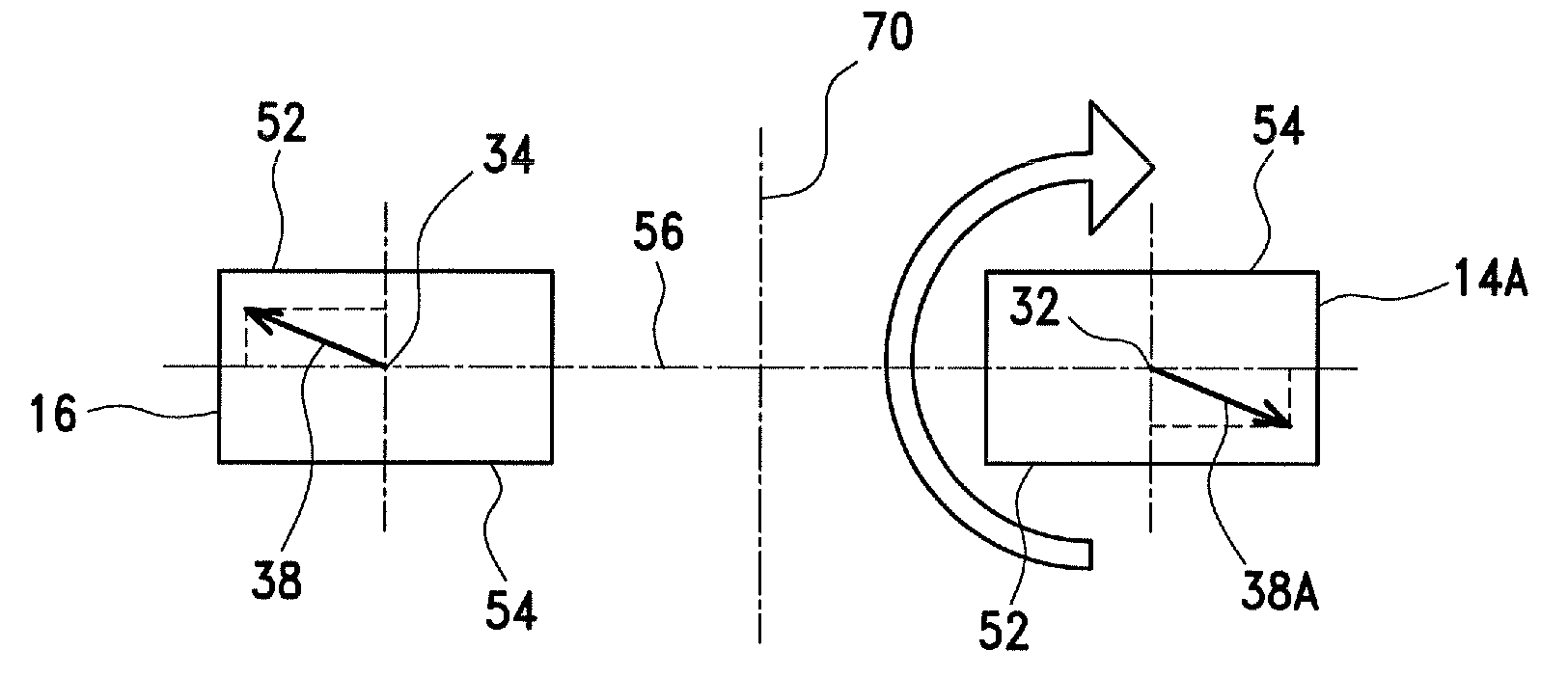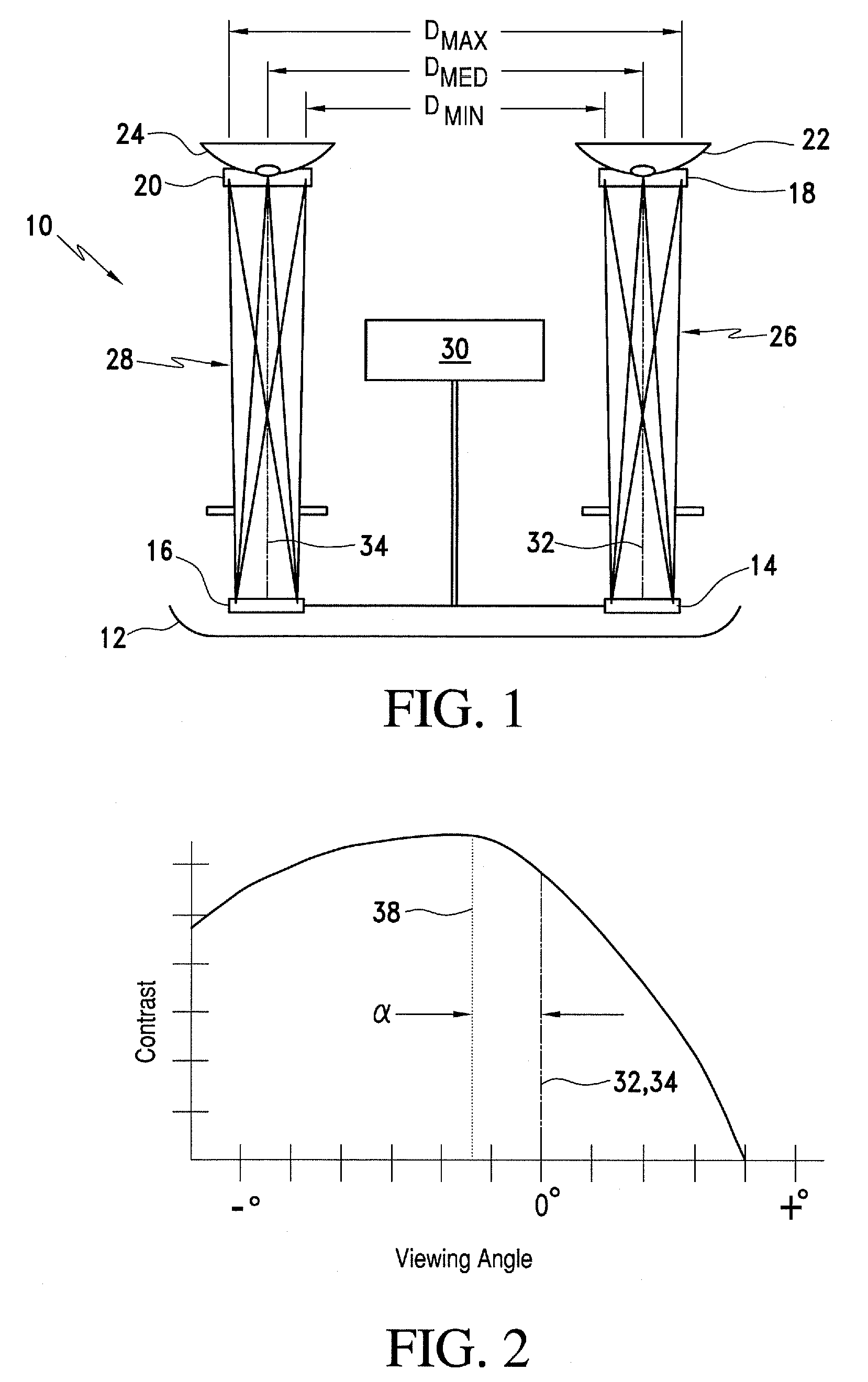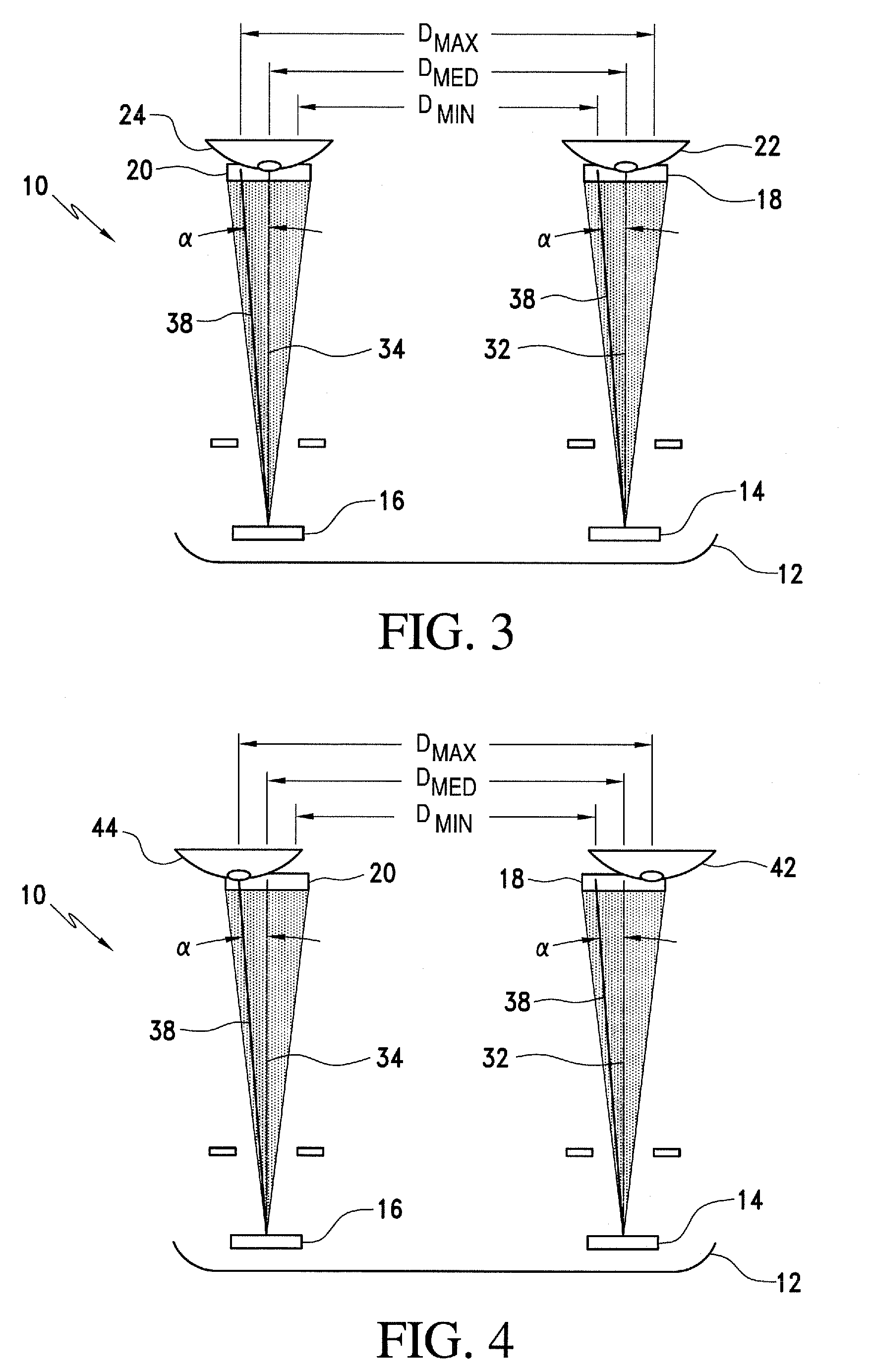Binocular display with improved contrast uniformity
a binocular display and uniform contrast technology, applied in the field of binocular video displays, can solve the problems of user discomfort, headache, and inability to use the binocular display for extended periods of time, and achieve the effects of improving optical contrast uniformity, reducing headaches, eye strain, and other discomforts
- Summary
- Abstract
- Description
- Claims
- Application Information
AI Technical Summary
Benefits of technology
Problems solved by technology
Method used
Image
Examples
Embodiment Construction
[0026]A binocular display 10 is depicted in FIG. 1 for purposes of reference. Within a common housing 12, left and right display screens 14 and 16 are visible within left and right eyeboxes 18 and 20 to left and right eyes 22 and 24 of a user. Optical systems 26 and 28 preferably include focusing optics (not shown) for producing magnified virtual images of the display screens 14 and 16 visible within the eyeboxes 18 and 20.
[0027]The display screens 14 and 16 are preferably compact high-resolution image generators capable of producing real images in a still or moving form containing more information than can be normally discerned by the human eye without magnification. Backlit liquid crystal displays (LCDs) are preferred for these purposes, such as Kopin 230K CyberDisplays PN#KCD-QDLF-M from Kopin Corporation of Massachusetts mounted with a fixed interpupillary distance of 63.5 mm and a 24 degree diagonal field of view through a conventional optical lens system. However, a variety of...
PUM
 Login to View More
Login to View More Abstract
Description
Claims
Application Information
 Login to View More
Login to View More - R&D
- Intellectual Property
- Life Sciences
- Materials
- Tech Scout
- Unparalleled Data Quality
- Higher Quality Content
- 60% Fewer Hallucinations
Browse by: Latest US Patents, China's latest patents, Technical Efficacy Thesaurus, Application Domain, Technology Topic, Popular Technical Reports.
© 2025 PatSnap. All rights reserved.Legal|Privacy policy|Modern Slavery Act Transparency Statement|Sitemap|About US| Contact US: help@patsnap.com



